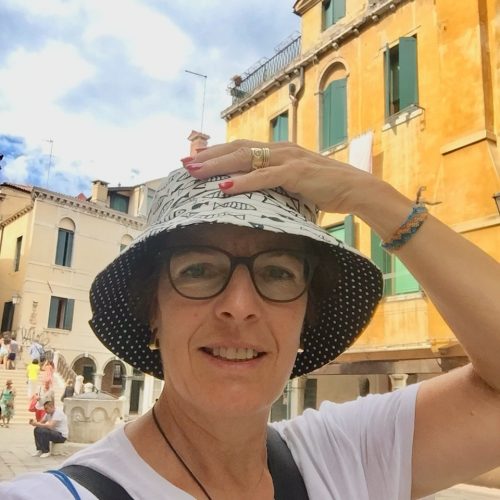
I consider myself a citizen of the world due to my international heritage even though I grew up and still live in Verona. At home we spoke three languages and I never really considered a job that would not include my language skills
I studied Languages and Literature in Venice at the University of Ca’ Foscari and I graduated in German. I often travelled to international trade fairs for various companies and therefore came to realize that most everyone believed that all Verona had to offer was the tragic love story of Romeo and Juliet. This is not true and therefore thanks to my interest in art, history and any detail regarding my city I found time to study and finally became a registered tourist guide in 2000 for English, German and French. Since then I love to tell visitors that Verona is much more than a city in which Shakespeare placed his tragedy of two ‘star-crossed’ young lovers.
A stroll along our river Adige which was the highway of the past and the focal point for the wool industry of the Middle Ages with which the local merchants made most of their money. An introduction to the Opera summer festival in the Arena and a stroll to the parts of town which saw Maria Callas at the beginning of her career. If you are a history buff then a tour encompassing our 2000 year history is a must and we have everything right here in town: the roman times, the Middle Ages, the Venetian domination and last but not least also 50 years under the rule of the Hapsburgs. Our churches highlight the romanesque, gothic and renaissance architecture the same way as the painters and sculptors show their talent in one of our many museums.
Verona is a World heritage site for Unesco and not because of the roman amphitheater or other roman remains but because we still have around 10 kilometers of city walls . A few meters date back to roman times but the interesting parts are the medieval and Venetian and also the Austrian walls from the 14th to the 19th century. A perfect example of how an important and strategic military city adapted its defenses as soon as the specific technology evolved. I would be happy to show you what we have left and various interesting walks -some slightly more strenuous than others - are available .
In the past few years I have also become very interested in the wines and typical food products of our area and so in 2016 I became a sommelier. With a good friend ( also a tourist guide and sommelier) we offer city tours to tell visitors all about the many varieties of grapes and DOC and DOCG wines we grow (and drink) in our area and all the good food we have (risotto, polenta, horsemeat stew, potato dumplings and Pandoro are probably the best known) .We can visit different areas such as Soave, Valpolicella and Bardolino where many different wine tastings are possible and on Facebook our page is : SorseggiandoVerona.
I could continue with stories about the many beautiful churches, palaces , hidden corners, unexpected views , the love stories that have a connection to this city but nothing to do with Romeo and Juliet but I suggest you visit Verona for 2-3 days and discover its magic with a bit of my help .
A web site of
Ass. ASSOGUIDE VERONA
Via Maggi, 7
37121 VERONA
C.F.: 03238250231